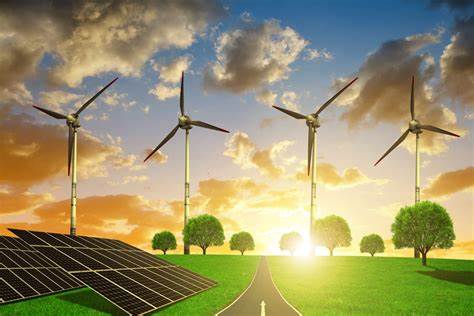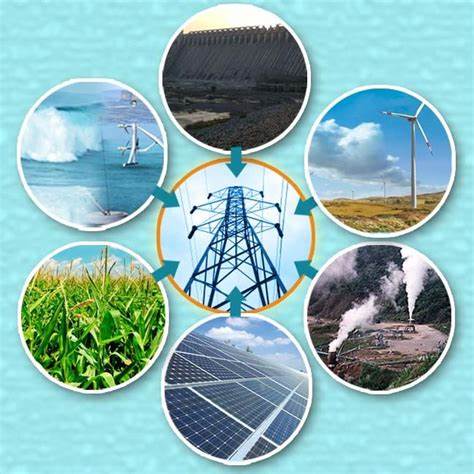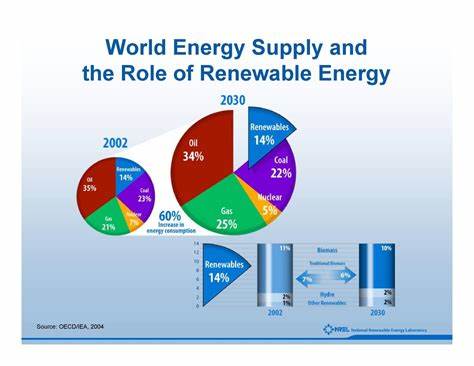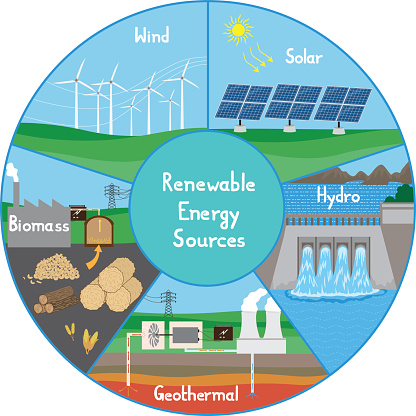
Renewable Energy Sources: A Path to a Sustainable Future
Introduction
Renewable energy sources have become a crucial topic in today’s world as we strive for a more sustainable future. The need for clean, reliable, and accessible energy has never been more important. This article aims to provide a comprehensive overview of renewable energy sources, their historical background, key concepts and definitions, main discussion points, case studies or examples, current trends or developments, challenges or controversies, future outlook, and a concluding summary.
Historical Background
The history of renewable energy sources dates back centuries, with early civilizations harnessing the power of wind, water, and sunlight. However, it was during the industrial revolution that the world witnessed a significant shift towards fossil fuels. In recent decades, there has been a growing recognition of the environmental impacts of fossil fuel consumption, leading to increased efforts to explore and adopt renewable energy technologies. This section will explore the evolution and adoption of renewable energy sources, highlighting key milestones and advancements in the field.
Key Concepts and Definitions
To fully understand renewable energy sources, it is essential to define their characteristics and explore key terms associated with them. This section will provide a clear definition of renewable energy sources and explain their various types, such as solar power, wind energy, hydropower, geothermal energy, and biomass energy. Additionally, it will delve into the difference between renewable and non-renewable energy sources, shedding light on their respective advantages and limitations.

Environmental Benefits of Renewable Energy Sources
Renewable energy sources play a crucial role in reducing greenhouse gas emissions, helping combat climate change. By replacing fossil fuels with clean energy alternatives, we can significantly decrease the carbon footprint and mitigate the effects of global warming. Additionally, these sources have a positive impact on air and water quality, as they produce little to no air pollutants or harmful byproducts. Moreover, renewable energy sources contribute to the preservation of ecosystems and biodiversity.
Economic Advantages of Renewable Energy Sources
The adoption of renewable energy sources brings about numerous economic advantages. One of the most notable benefits is the potential for job creation in the renewable energy sector. As this industry continues to grow, it presents new employment opportunities and stimulates economic growth. Moreover, relying less on fossil fuels leads to cost savings in the long run, as renewable energy sources are often cheaper to produce and maintain. Furthermore, by reducing dependence on foreign oil and gas, countries can enhance their energy independence and reduce vulnerability to fluctuating fuel prices.

Energy Security and Resilience
Renewable energy sources offer enhanced energy security and resilience. By reducing dependence on foreign energy imports, countries can ensure a more stable and secure energy supply. Additionally, renewable energy plays a vital role in enhancing the stability of energy grids, as it is often distributed across multiple sources. This resilience becomes particularly important during natural disasters or other emergencies, as renewable energy sources can continue to provide power even when traditional energy infrastructure is compromised.
Case Studies or Examples
This section will highlight successful examples of countries implementing renewable energy strategies. It will delve into specific projects or initiatives that showcase the benefits and effectiveness of renewable energy. Additionally, it will present success stories of businesses or individuals adopting renewable energy sources, illustrating the real-world impact and viability of these technologies.
Current Trends or Developments
Recent advancements in renewable energy technologies have paved the way for exciting developments. This section will explore these advancements and discuss their potential implications. It will also highlight the increasing global investment in renewable energy projects, showcasing the commitment of governments and private entities to transition towards cleaner energy sources. Furthermore, it will delve into the growing integration of renewable energy in transportation and heating sectors, further reducing reliance on fossil fuels.

Challenges or Controversies
While renewable energy sources offer numerous benefits, they are not without challenges and controversies. This section will address challenges related to intermittency and storage of renewable energy, explaining how these issues are being addressed through technological advancements. It will also discuss controversies surrounding the environmental impact of specific renewable energy technologies, such as wind turbines and bird migration. Additionally, it will present differing viewpoints on the cost-effectiveness of renewable energy compared to fossil fuels.
Future Outlook
The future of renewable energy sources looks promising as countries strive to achieve their sustainability goals. This section will speculate on the future growth and adoption of renewable energy sources, discussing potential breakthroughs and innovations in renewable energy technologies. It will also highlight the role of government policies and international agreements in shaping the future of renewable energy, emphasizing the importance of collaboration and collective action.
Conclusion
In conclusion, renewable energy sources offer a viable and sustainable solution to our energy needs. This article has provided a comprehensive overview of renewable energy, exploring its historical background, key concepts and definitions, main discussion points, case studies or examples, current trends or developments, challenges or controversies, and future outlook. It is clear that renewable energy sources are not only environmentally beneficial but also economically advantageous, contributing to energy security and resilience. It is imperative that we continue to explore and research this topic further, as the significance and importance of renewable energy cannot be overstated.




